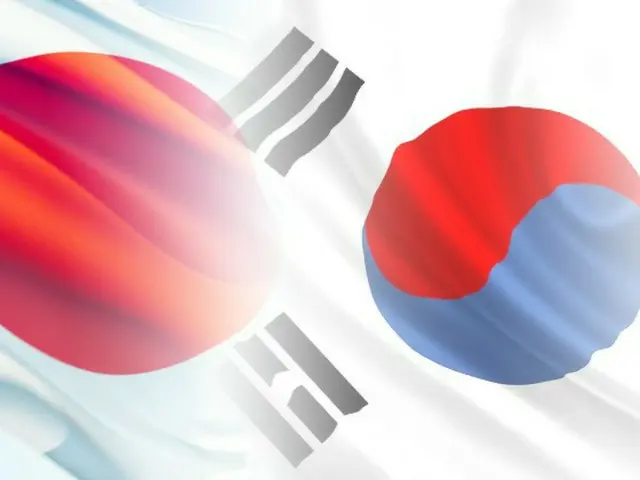This is an unusual development, with the Gwangbok Association, an organization made up of activists involved in the Korean independence movement and their descendants and surviving relatives, and the largest opposition party, the Democratic Party of Korea, among other opposition parties announcing that they will not participate.
However, this is the first time that he has not attended the government-sponsored Liberation Day ceremony. What on earth happened? The Korean Peninsula was liberated from colonial rule by Japan after its defeat in the Pacific War on August 15, 1945.
In South Korea, August 15th is called "Gwangbokjeol" (Liberation Day), which means the day that sovereignty was restored. It is a national holiday, and a government-sponsored commemorative ceremony is held every year.
In September, US and Soviet troops (at the time) occupied the area in separate divisions. The Republic of Korea (South Korea) was founded on August 15, 1948, and the Democratic People's Republic of Korea (North Korea) on September 9.
The Ministry of Patriots and Veterans Affairs, a national administrative agency under the Prime Minister's Office, announced this month that
The Independence Hall of Korea in Seoul has appointed Kim Hyunsuk as the new director. The museum showcases the history of the struggle for freedom and independence through more than 85,000 items.
The museum was established in 1987 with funds raised through voluntary donations from the Korean people, in order to ensure that the memories of the experiences they had received would not be forgotten. The director of the museum was selected by the Director of Patriots and Veterans Affairs Department, who recommended several candidates through the Executive Committee appointed by the museum's board of directors.
The president appoints the director after the request of the government officials. However, the Gwangbok Association and other groups are opposed to Kim's appointment as the new director. "The founding of the Korean nation began with the establishment of the Provisional Government in 1919, and the Republic of Korea was established in 1948.
The Gwangbok Association took issue with Kim's view that "the establishment of the Provisional Republic of Korea Government marked the end of colonial rule."
They demanded that Kim's appointment as director be revoked, claiming that he is a "New Right" ideologist who sees Korea's modernization as a "political law" and instead claims that Korea's modernization took place during the colonial period.
They argue that 1948, the year the government was established, is more important than 1945, the year the country was liberated from Japanese colonial rule, and that August 15 should be celebrated as "National Foundation Day" instead of the current "Liberation Day."
The Gwangbok Association and other groups are opposed to the move, arguing that it undermines the significance of the independence movement. Today, the government will be hosting a ceremony to commemorate Liberation Day, and the Gwangbok Association will be participating in the ceremony on the 11th along with 37 other groups related to the independence movement.
In addition, six opposition parties, including the main opposition Democratic Party, the Fatherland Reform Party, the Progressive Party, and the New Future Party, have also decided to abstain.
The acting representative and floor leader of the National Assembly criticized the appointment of Kim Hyun-suk, saying, "The appointment of Kim Hyun-suk is an outrageous act that completely undermines the identity of the Republic of Korea and denies history."
The six opposition parties, who decided not to attend the ceremony, filed a petition with the National Assembly Bill Division on the 12th stating, "Kim Hyun-suk, the independent director, should immediately withdraw his appointment and apologize to the public for forcing through this unreasonable personnel decision."
In response, Kim held a press conference on the 12th and said, "I am a member of the New Right, which denounces independence activists and defends colonial rule.
He countered that the criticism from the Kwangbok Association and other groups was a "misinterpretation" and "misunderstanding," and said, "They are directing public opinion to you (the New Right) and conducting a people's trial like a witch hunt."
In addition, during an interview for the museum director selection process, Kim responded to a question about the nationality of Korean citizens during the colonial period by saying, "The nationality during the colonial period was Japanese," and "The independence movement was carried out to regain national sovereignty."
He pointed out that the Gwangbok Association and other groups had misinterpreted this response and criticized Kim for claiming that Koreans were Japanese subjects. Kim said, "If my claim is wrong,
"We should point this out academically. Let's have a public debate," he said, adding that he had no plans to step down as director. The Gwangbok Association announced today that it will hold its own ceremony separate from the government-sponsored one.
This is the first time that the Gwangbok Association and other independence activist groups have not attended the government-sponsored Gwangbok Day commemoration ceremony, and the South Korean newspaper Hankyoreh reported, "Gwangbok Day for a 'split in two' Korea."
There are.
2024/08/15 11:25 KST
Copyrights(C)wowkorea.jp 5

